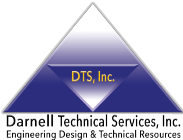Effective project management requires a combination of technical skills, experience, and knowledge, but it also requires the implementation of project management best practices. In this blog post, we will explore the importance of implementing project management best practices and some of the most popular and effective best practices that organizations can adopt.
Clear Communication
One of the most significant project management best practices that every organization should implement is clear communication.
A project manager should establish clear communication channels with team members and stakeholders to ensure that all relevant information is shared timely and effectively. Good communication helps to establish a shared understanding of project goals, key milestones, and expectations. It also prevents misunderstandings and reduces the likelihood of project failure.
To learn more about this topic, read our previous blog “Mastering Writing Skills for Project Managers.”
Risk Management
Another essential best practice in project management is risk management. Every project involves some degree of risk, and it is essential to identify, evaluate, and manage potential risks throughout the project life cycle.
Risk management involves developing a risk management plan, assessing risks regularly, implementing mitigation measures, and monitoring the project to ensure that risks are effectively managed.
Agile Methodology
Agile methodology is a project management approach that is becoming increasingly popular, particularly in software development projects.
Agile methodology involves breaking down a project into smaller incremental stages, each with its own deliverables. This approach promotes collaboration, flexibility, and rapid response to changes, making it an effective project management best practice that organizations should consider.
Resource Management
Effective resource management is another essential project management best practice. It involves budgeting, scheduling, and allocating resources to ensure that the right resources are available at the right time to complete project tasks and deliverables.
Effective resource management requires a clear understanding of project requirements, excellent organizational skills, and the ability to prioritize tasks based on their impact on project success.
Continuous Improvement
Finally, continuous improvement is a best practice that every organization should adopt. Every project should be viewed as an opportunity to learn and improve project management processes.
Implementing continuous improvement means collecting data, analyzing performance metrics, identifying areas of improvement, and enacting changes to improve future project outcomes.
Wrapping It Up
Project management best practices are essential to ensure successful project outcomes and minimize the risk of project failure.
Clear communication, risk management, agile methodology, resource management, and continuous improvement are just a few of the many best practices that organizations can implement.
By incorporating best practices into their project management processes, organizations can achieve better results, optimize performance, and ultimately gain a competitive edge in today’s increasingly competitive business environment.
About Darnell Technical
Darnell Technical Services is an engineering design firm with extensive experience in a vast array of projects. Our headquarters are located in Santa Ana, California, and we have an office in Las Vegas, Nevada.
Contact us today by telephone (714-285-0082 (CA), 702-945-2899 (NV)) or through our social media accounts on Facebook, Twitter, and LinkedIn to learn more about all the technical instruments and materials we put at your disposal.








